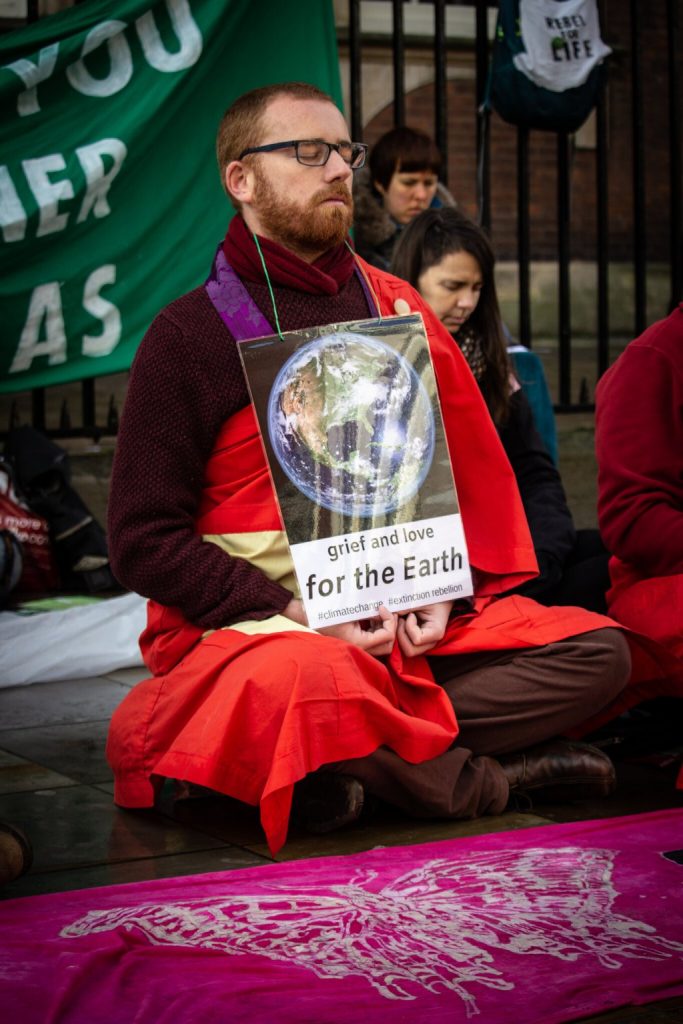with insights from Patrick Barkham and Julian Hoffman
By Kaspalita Thompson
As I write, temperatures in the Arctic Circle are soaring to around 40o C. What’s happening in response? Very little, as far as I can tell.
A few days ago I was reflecting on how quickly life in the UK had changed in response to Covid-19, and asking what lessons might be drawn from that, when I found myself in the audience of a discussion between nature writers Julian Hoffman and Patrick Barkham, at the online Wonderland festival.
Julian Hoffman’s most recent book Irreplaceable is about how individuals and groups are working hard to save important natural spaces. Patrick Barkham’s latest book is Wild Child: Coming Home to Nature. Inevitably, the theme of the climate and ecological crises and how we respond to those was woven into their conversation.
It’s been striking how quickly and easily people, businesses and governments have made dramatic changes in response to the Corona virus: a Conservative government spending billions of pounds to pay the wages of ordinary workers; people restricting themselves to their houses apart from once a day to exercise; and grounded aeroplanes and unused cars.
Why did we respond so quickly?
At the end of the Wonderland panel I asked a question about what we might learn from lockdown. Patrick Barkham talked about the sense of “imminent danger” that we had in response to coronavirus, and that many people don’t have that sense in response to the climate crisis.
At the beginning of the pandemic there was a real sense of urgency, and of personal risk. There was a sense that I might die, and my loved ones might die – not in some abstract future scenario, but in the next few months, by this disease that I can already see killing thousands of people.
An invitation to urgency
Is it the work of climate activists to create this sense of urgency?
When I think of creating urgency from a Buddhist point of view, I think of that tension between urgency and ease that we find in the Buddha’s teachings and across different Buddhist traditions. I see that in the contrast between exhortations to practice like your hair is on fire and the sense of relaxed confidence that I saw in Theravada monks I met in India, with their deep faith in their practice and in the Buddha.
I also think of my work with psychotherapy clients, and my clear awareness of the danger of overwhelming powerful emotions. I know that powerful emotions can be faced and transformed, and I also know that my job is to support the client into a place where that is possible. There is one state of mind in which we can do that work, and many states of mind in which the healing can’t happen.
As activists can we hold both urgency and safety in mind?
Home, urgency and safety
On the Wonderland panel, Hoffman described the common element he discovered in those groups and individuals working to save and take care of wild spaces: they had all expanded their sense of home to include those natural spaces. The woodlands, the meadows, and the waterscapes became parts of these activists’ homes, and they formed some sense of community with the non-human life in those spaces.
Seeing the landscape as home and facing its destruction brings that same sense of urgency that Covid-19 inspired.
There’s also a connection between home and safety as well. Whilst the threat to these places inspires urgency, I imagine that inhabiting these spaces resources and nourishes the activists.
Buddhism
Our job as Buddhist activists is to both cultivate that sense of urgency, and to support people to experience that urgency without being overwhelmed.
As Buddhists we take refuge in the Buddha, Dharma and Sangha. The word refuge connects to home, and to the safety that homes offer. We can find a similar safety wherever we are through rooting ourselves in the three jewels.
As well as the practices and teachings that can support us and others to be with powerful feelings we can also offer our own ways of being to others.
I went into that panel discussion at the online festival carrying my own doubts and fears, and I caught some of Patrick Barkham and Julian Hoffman’s hope. Faith, trust, confidence and ease are as infectious as hopelessness.
Hoffman spoke about the changes that have been made in European cities like Milan to accommodate walking and cycling. These changes came out of people’s experience of lockdown and wanting to keep some of the good. “Not enough, but a start.” He said.
Barkham spoke of the hope that arose from looking at young people, both in the climate activist movement and in social justice movements like Black Lives Matter.
Sometimes I am able to ground myself in that hope for the future, and sometimes I am not. Buddhism offers another hope as well: regardless of worldly conditions, liberation is possible.
Anchoring ourselves in the liberation of the Buddhas, we can face and respond to urgency, and take action to mitigate the climate crisis, and we can support each other to tumble gracefully into whatever happens next, whether we are able to mitigate the climate crisis or not.

Acharya Kaspalita Thompson, known as Kaspa, is a Buddhist Teacher, psychotherapist and member of XR Buddhists.
